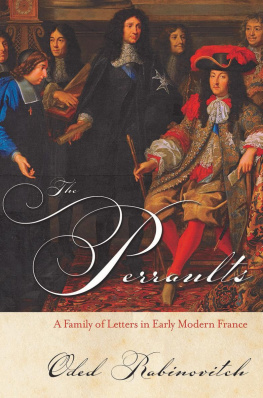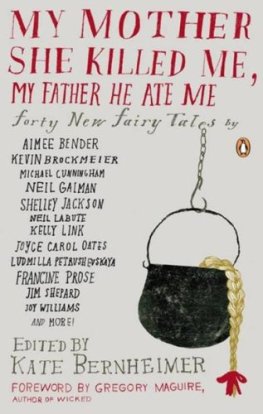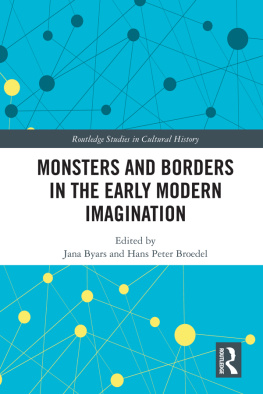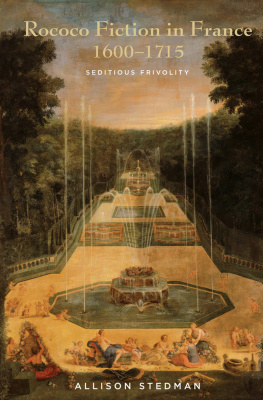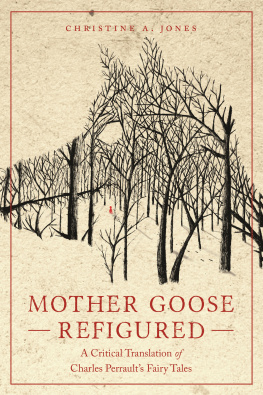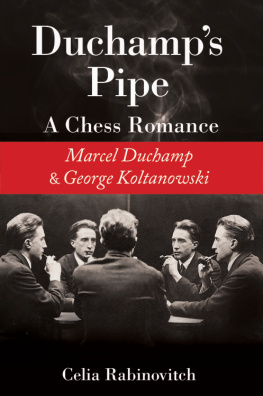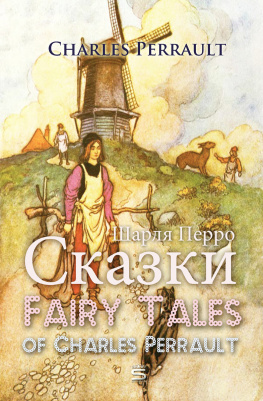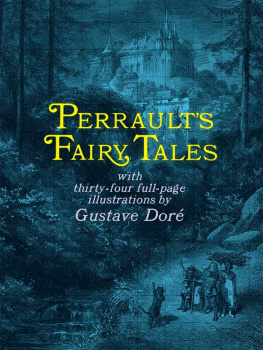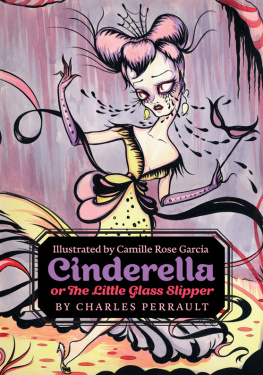A CKNOWLEDGMENTS
I have accumulated numerous debts of gratitude while researching and writing this book, and I am glad for the opportunity to acknowledge at least some of them. The project took shape at Brown University, under the benevolent guidance of Tara Nummedal. Ever perceptive and encouraging, Tara graciously taught me what professional history is like. Joan Richards and Caroline Castiglione patiently followed the progress of the manuscript and contributed many useful suggestions. Moshe Sluhovsky generously agreed to read this work at an early stage; going well beyond the call of duty, he has been unfailing in supporting the project ever since. At Harvard University, Ann Blair helped me to develop the book conceptually and empirically and offered an inimitable model of scholarship as a mentor. Tom Conley, Katharine Park, and Daniel Smail helped with astute advice; Patrice Higonnet generously braved a reading of the entire manuscript at a crucial moment.
In Paris, I was fortunate to find a home at the Groupe de Recherches Inter-disciplinaires sur lHistoire du Littraire (GRIHL). The wonderful seminars opened new ways of looking at texts and contexts, and the warm hospitality made it an ideal home away from home. I thank Mathilde Bombart, Marion Brtch, Alain Cantillon, Laurence Giavarini, lie Haddad, Sophie Houdard, Judith Lyon-Caen, Brengre Parmentier, Dinah Ribard, Marine Rousillon, Nicolas Schapira, Ccile Soudan, Alain Viala, and two at-large participants, Dborah Blocker and Xenia Von Tippelskirch. Special thanks go to Christian Jouhaud, who supported the project from an early stage and was always ready to share his intimate knowledge of the seventeenth century and his deep reflections on its history.
Many colleagues have discussed this work, read the manuscript (or parts of it), shared their own ideas, or helped with points of information. Giora Sternberg discussed the world of Louis XIV and early modern France with me countless times, in three continents and at all times of day and night. I am truly privileged to share a research field with a good friend. For their help and support in its many forms, I thank Danna Agmon, Clare Crowston, Robert Descimon, Nicholas Dew, Jonathan Dewald, Marie-Claude Felton, Jorge Flores, Laurence Fontaine, Dena Goodman, Anita Guerini, Rivi Handler-Spitz, Julie Hardwick, Tim Harris, Christine Haynes, Elizabeth Hyde, Florence Hsia, Vera Keller, Virginia Krause, Evelyn Lincoln, Dniel Margcsy, Steven Mentz, Prabhu Mohapatra, Chandra Mukerji, Brengre Parmentier, Ritika Prasad, Jeff Ravel, Amy Remensnyder, Thierry Rigogne, Meghan Roberts, David Sabean, Robert Schneider, Lewis Seifert, J. B. Shank, April Shelford, Peter Shoemaker, Otto Sibum, Jacob Soll, Alessandro Stanziani, Mary Terrall, Simon Teuscher, Geoffrey Turnovsky, Stphane Van Damme, Liana Vardi, Jaqueline Wernimont, Kath Weston, Stephen White, Dorothee Wierling, and Abby Zanger. Maxime Martignon helped with opportune research assistance. S. R. Gilberts unmatched linguistic skills greatly improved the phrasing and structure of this book.
I thank the staff at Cornell University Press, where Bethany Wasik and Jennifer Savran Kelly helped me through the editing and production phase. Jamie Fullers eagle-eyed copyediting corrected numerous infelicities, and David Prout did an expert job indexing the volume. I am deeply grateful to Emily Andrew, who went out of her way to help a first-time author with invaluable feedback. Indeed, the two anonymous readers for the press have proved remarkably thorough and offered insightful feedback: any faults that remain are, of course, my own. Short sections of chapters 2 and 4 have appeared as Stratgies familiales, carrires littraires, et capitalisme de cour dans la famille Perrault, XVII e sicle 264 (2014): 40315; an early version of chapter 5 appeared as Versailles as a Family Enterprise: The Perraults, 16601700, French Historical Studies 36 (2013): 385416 (Copyright, 2013, the Society of French Historical Studies. All rights reserved. Republished by permission of the copyrightholder, and the present publisher, Duke University Press. www.dukeupress.edu).
Tel Aviv University played an extraordinary role in my training, and I am fortunate to have returned to it as a teacher. The first seeds of this project were sown here, and this is where I completed the manuscript. I would like to thank the community of early modernists in the Department of History, who inspired me as teachers and have more recently sustained me as colleague: Benjamin Arbel, lie Barnavi, Miriam Eliav-Feldon, Tamar Herzig, David Katz, Nadine Kuperty-Tsur, and Joseph Mali. Gadi Algazi deserves special thanks for introducing me to the social history of early modern scholars, for his remarkable breadth of knowledge, and for his incisive insights. When I was a first-year student at Tel Avivs Interdisciplinary Program, Raz Chen-Morrisperhaps unwittinglyset me on this wandering path; many thanks! I have been learning a great deal from my students, and I would especially like to thank those whose theses taught me about the intellectual life of early modern France: Rachel Ben David, Netta Green, and Yoni Yedidya.
Numerous friends shared their intellectual enthusiasm and encouraged my work in so many ways. I thank Naor Ben-Yehoyada, Naama Cohen-Hanegbi, Daniel Hershenzon, Ayelet Even Ezra, Shaul Katzir, Noam Maggor, Tali and Sagi Schaefer, Amir Teicher, and Ittai Weinrib for innumerable conversations at Tel Aviv. Other friends helped me get to graduate school, to survive it, or both: Boaz Keren-Zur, Derek Seidman, Yuval Ramot, Raanan Schul, Yannay Spitzer, Julia Timpe, Eyal Tzur, Roy Vilozny, Adam Webster; Chris Barthel and Mo Moulton were true friends in need when I had to deal with the exotic way of life in the United States. Shay Rojanski did much the same in France and helped with designing the genealogies.
Librarians and archivists at the Archives de lAcadmie des sciences, the Archives nationales, the Bibliothque de lArsenal, the Bibliothque Mazarine, the Bibliothque nationale de France, and the Bibliothque du chteau de Chantilly provided assistance in tracing the Perraults across the seventeenth century. I owe special thanks to Marie-Franoise Limon-Bonnet from the Minutier Central for going out of her way in making documents accessible. At Brown, I thank the staff of the Rockefeller and John Hay libraries, and especially Dominique Coulombe. At Harvard, I thank the staff of the Houghton and Weidner libraries. I am grateful for generous financial support from Brown University; the Fulbright program; the French government in the form of a Bourse Chateaubriand; the Program in Renaissance and Early Modern Studies and the Cogut Center for the Humanities at Brown University; the Zvi Yavetz Graduate School of Historical Studies at Tel Aviv University for a Thomas Arthur Arnold Postdoctoral Fellowship; the Israel Science Foundation, which supported this publication; and an invitation to spend a crucial month as a Professeur invit at the Universit de Paris-Est (Marne-la-Valle).
It is only fitting for this book to conclude with deep thanks to my own family: my brother, parents, and grandparents encouraged, supported, and sustained me throughout in innumerable ways, for which I am profoundly indebted. I cannot imagine a better partner in these academic and real life peregrinations than Inna. Romi and Ilay teach us every day about the challenges and opportunities of kinship.

